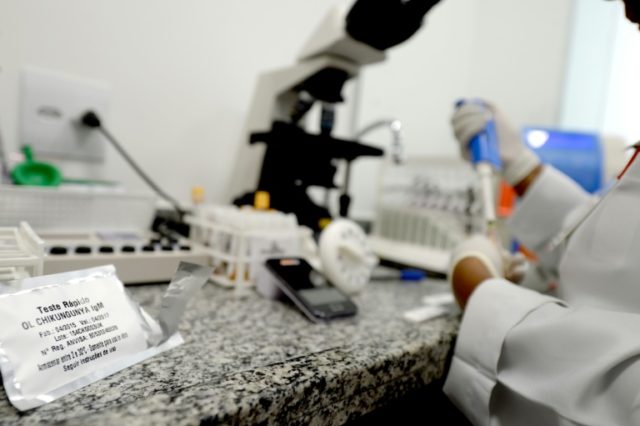Geneva (AFP) – No Zika cases have so far been detected among athletes, spectators or other participants in last month’s Olympic Games in Brazil, the World Health Organization said Friday.
“We don’t have any confirmed cases of Zika amongst travellers or amongst… the athletes,” Peter Salama, the WHO’s chief on outbreaks and health emergencies, told reporters.
He pointed to data presented by Brazilian experts to the UN health agency’s emergency committee on Thursday detailing the situation in the country, which by has been the hardest-hit by far.
The experts provided “very convincing data” showing that among all Olympic athletes and spectators who sought medical attention during the Games, not a single case of acute Zika infection had been detected, emergency committee chair David Heymann said.
Nor have any such cases been reported in people who returned back to their own countries following the games, he said.
Ahead of the Olympics there was widespread concern that international travellers flocking to the Games would help the virus to spread further and faster.
WHO had however stressed that since the Games were held during the Brazilian winter, risk of transmission of the mosquito-borne virus was “minimal”.
– ‘No significant increase in transmission’ –
“The data to date has really validated that assessment,” Salama said Friday, adding that he remained “optimistic that the same risk assessment will hold” for the upcoming Paralympic Games in Brazil.
He acknowledged that there could still be “a few cases that come up either now or after the Paralympics”.
“But certainly we feel fairly confident that the risk assessment that there (would) be no significant increase in transmission due to the Olympics is fairly much on track,” he said.
WHO meanwhile said Friday that Zika is still a public health emergency, reiterating its February position.
Seventy countries and territories have reported local mosquito-borne Zika transmission, with Brazil by far the hardest hit.
Since the outbreak began last year, more than 1.5 million people have been infected with Zika in Brazil, and more than 1,600 babies born with abnormally small heads and brains.
Benign in most people, Zika has been linked to a form of severe birth defect called microcephaly which causes newborns’ heads to be abnormally small.
It can also cause rare adult-onset neurological problems such as Guillain-Barre Syndrome (GBS), which can result in paralysis and even death.

COMMENTS
Please let us know if you're having issues with commenting.